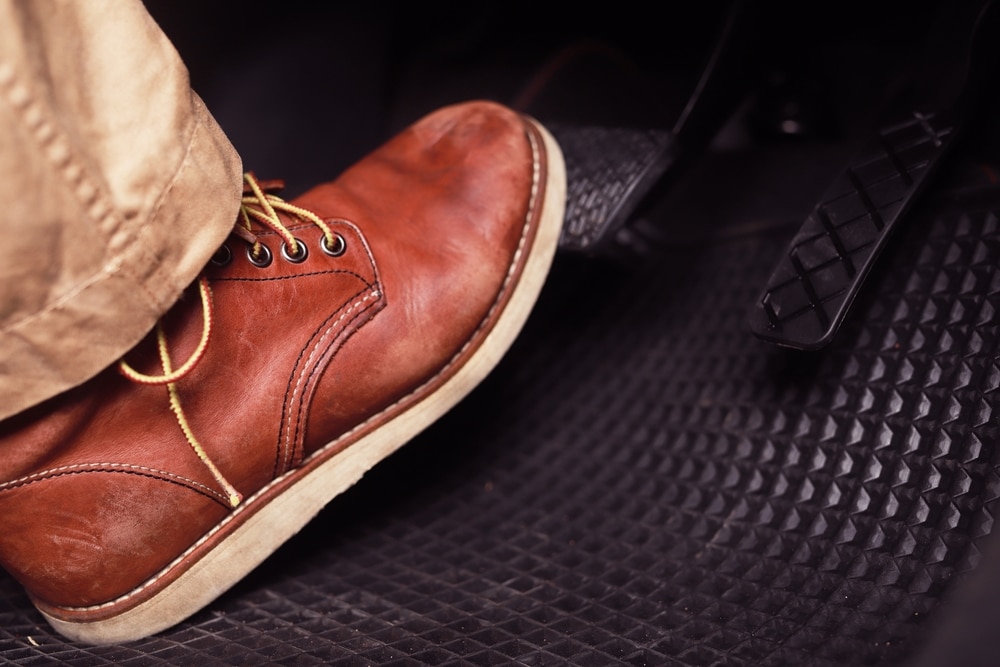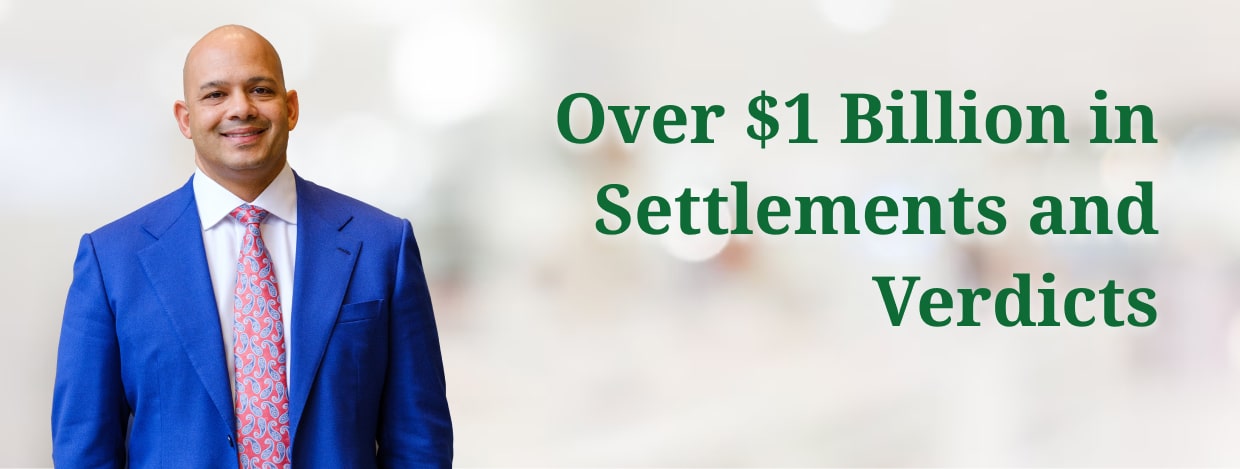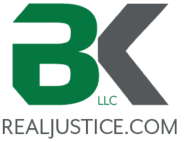
Almost everyone has hit the brakes at some time to avoid an accident, but can an insurance company find you at fault because you braked when you did? Many new cars are smart enough to brake on their own, so when is sudden braking a mere reflex, and when is it road rage? It is hard to devote mental energy to these matters when you are dealing with all the bills associated with a car accident, especially if you are injured and dealing with medical bills. If the insurance companies are giving you trouble because you braked before an accident, contact a Fort Lauderdale car accident lawyer at Bernheim Kelley Battista LLC.
Table of Contents
- What is Brake Checking?
- What is Tailgating?
- Who is at Fault During a Brake Checking Accident?
- Is Brake Checking Illegal?
- Why Do People Brake Check?
- When Should You Brake Check?
- Is Brake Checking Illegal in Road Rage Car Accidents?
- Insurance Fraud Related to Brake Checking
- Brake Checking a Tailgater
- How to Deal With Tailgaters
- How to Prove Brake Checking
- What to Do if the Driver Behind You is Tailgating
- What to Do if Brake Checking or Road Rage Caused an Accident
- Who Pays for the Damages in a Brake Check Accident?
- Fault and Liability for Brake-Checking Accidents
- Why Should a Person Hire BK Law for Brake Checking Accidents?
What is Brake Checking?
Brake checking is when you suddenly and sharply apply the brakes when another car is close behind you. It causes your car to slow down quickly and increases the risk of a rear-end collision with the car behind you. Sometimes brake checking is the best response to the situation, such as if you are trying to avoid hitting a car or obstacle that suddenly entered your path. Brake checking can be dangerous, though, because it can cause you to lose control of your car and lead to multi-vehicle collisions. Sometimes drivers with bad tempers hit their brakes quickly just to signal their annoyance that the driver behind them is getting too close. A Fort Lauderdale personal injury lawyer can help you if you got injured in an accident that involved brake checking.

What is Tailgating?
Tailgating is when you drive very closely behind the car in front of you. The safest option is to leave a distance equivalent to the length of two cars between your car and the one in front of you. This way, if the person in front of you brakes unexpectedly, you have enough time to slow down to avoid a rear-end collision. Unfortunately, it is not always possible to leave that much space between cars in South Florida’s famously heavy traffic.
Why do people tailgate? Some people do it as a matter of road rage. They do it because they are mad that the person in front of them is driving too slowly. Tailgating does not make the person in front of you want to speed up. It just makes them want to push your buttons even more. The bumper stickers that say, “If you are reading this, you are too close” and “Get off my tail!” attest to this.
Who is at Fault During a Brake Checking Accident?
In most rear-end collisions, the driver in the back is at fault. You can prevent most rear-end collisions by maintaining a safe distance between you and the car ahead of you. If the driver in front hits the brakes just to get on the nerves of the rear driver, then the front driver is at fault for the accident.
If the front driver had a good reason to brake, then the front driver is not at fault. If the rear driver was following too closely, the insurance companies could find him or her partially or entirely at fault for the accident. If another person acted recklessly by suddenly pulling in front of the front driver, then that person bears at least some of the fault.
Is Brake Checking Illegal?
Florida law does not categorize brake checking as a criminal offense. However, in some cases, you can still face criminal charges if you do it. Intentionally causing a car accident is against the law, and in some cases, brake checking qualifies. If someone gets injured because you purposely caused an accident by brake checking, this could lead to criminal charges.
Even if you do not get criminal charges for brake checking, the injured driver of the rear car can sue you in civil court. If the court rules against you in a personal injury lawsuit, the court could order you to pay for the injured person’s medical bills, vehicle repairs, lost income, and legal fees.
Why Do People Brake Check?
People brake check because they are angry and frustrated. Brake checking is an aggressive driving action. When you brake check, you are either causing an accident on purpose or putting yourself and others at increased risk of an accident.
If someone is following you too closely, there are other actions you can take that will not increase the risk of an accident in the way that brake checking will. For example, you can change lanes to get away from the driver that is driving too close behind you. If there is enough space ahead of you on the road, you can increase your speed.
When Should You Brake Check?
You might run into situations where brake checking is the only way to avoid an accident. You should brake check if another car suddenly pulls in front of you or drives across your lane of traffic. It sometimes makes sense to do this even if there is another car behind you. If the rear driver is keeping a safe distance, then they will be able to brake in time to avoid colliding with the rear bumper of your car.
In most cases, brake checking is not the appropriate choice. You should not brake check just because the car is tailgating you. Two wrongs don’t make a right, as the saying goes.
To learn more, schedule a free consultation with us today.
Is Brake Checking Illegal in Road Rage Car Accidents?
By itself, brake checking is not a crime. The circumstances surrounding the brake-checking incident matter, though. You could get a traffic ticket or criminal charges.
You might get a traffic citation or criminal charges for reckless driving. The worst-case scenario is that brake checking could cause a fatal accident, which could lead to charges of vehicular manslaughter. Brake-checking accidents are rarely fatal, though, unless the cars are going very fast and one car flips, or the occupants are not wearing seatbelts.
Insurance Fraud Related to Brake Checking
Sometimes people hear about typical car accident settlement amounts and get greedy. Brake checking can also lead to criminal charges for insurance fraud. The police might suspect you of insurance fraud if they suspect that you were trying to total your car so you could get a new one. Of course, when you are thinking, “how much does an accident devalue my car?” it does not make sense to do this.
Insurance fraud charges are more likely if there is evidence that you and the other driver colluded to cause an accident. In other words, you and the rear driver planned the whole accident, including the tailgating and the brake checking.
Brake Checking a Tailgater
Brake checking a tailgater is a bad idea for several reasons. If you brake suddenly without a good reason, the insurance company will find you at fault for the accident. If the occupants of the rear vehicle get injured, they could even file a personal injury lawsuit against you. Personal injury lawsuits are more common when the medical bills resulting from the accident are more than the at-fault driver’s policy limit. Most insurance policies have a per-accident limit that they will pay for accident-related injuries. If there are four people in the rear car, and they all get injured seriously enough to require treatment, the bills could add up to more than your insurance policy limit. How much can someone sue for a car accident is not limited by insurance policy limits.
By brake checking a tailgater, you are also putting yourself and the passengers in your car at risk of injury. In most accidents, the occupants of the struck vehicle get more serious injuries than the people in the striking vehicle. Rear-end collisions have a relatively low rate of catastrophic injuries. Whiplash injury is a common consequence of rear-end collisions, especially for the people in the struck vehicle. It can cause chronic pain, and your insurance company may try to argue that the pain is from an old injury or a natural result of aging rather than from an accident. How long after an accident can you claim injury is not the only issue; you must also prove that the accident was the direct cause of the injury.
How to Deal With Tailgaters
Tailgaters are annoying, and snarky bumper stickers on the back of your car do little to discourage them. If someone is following you too closely, get into another lane and let them tailgate the car that was in front of you instead.
If you need to brake for a good reason, and the car behind you hits you because the driver was tailgating you, explain this to the police officer after the accident. Florida law requires drivers to report accidents that result in at least $500 in damage. If you are not sure how much the damage will cost, or even if you are sure that it is less than $500, you should still report it to the police. A police report can help you persuade the insurance company that you are not at fault for the accident.
How to Prove Brake Checking
After a car accident, you should take pictures of the vehicle's damage to corroborate the statements in the police report. If the driver in front of you is driving aggressively, a passenger in your car could capture a cell phone video. It is hard to predict when someone is going to brake suddenly, so if you have a video of the brake-checking incident, you are among the lucky few.
What to Do if the Driver Behind You is Tailgating
If the driver behind you is tailgating, do not brake sharply or drive slowly just to increase the other driver’s frustration. Speed up or change lanes if you have room to do so. If you do not, then just wait it out. Dealing with a tailgater is much less frustrating than dealing with all the bills and phone calls associated with a car accident claim.
What to Do if Brake Checking or Road Rage Caused an Accident
If brake checking or road rage caused an accident, file a police report at the scene of the accident, even if the vehicle damage is minor. Be as objective as possible when talking about the front driver’s sudden braking or aggressive behavior. It strengthens your claim if it is the police officer’s opinion that the other driver behaved unreasonably rather than your opinion.
If you were seriously injured in a brake checking or road rage accident, contact a personal injury lawyer. Your lawyer may be able to get the insurance company to cover your accident-related bills without filing a lawsuit.
Who Pays for the Damages in a Brake Check Accident?
In most car accidents, the insurance company of the at-fault driver pays for the damages. If brake checking was the main cause of the accident, then the front driver who braked suddenly is at fault.
If the driver who brake checked in front of you was driving a vehicle that belonged to a company, then the company or its insurance must pay the damages. For example, if the driver was driving a Publix truck, then Publix is legally responsible for the brake-checking accident.
Fault and Liability for Brake-Checking Accidents
Insurance companies determine fault for accidents on a case-by-case basis. They do not automatically assume that the rear driver in a rear-end collision is at fault. You will have the chance to present evidence to convince the insurance company that you did not cause the accident. The police report and photos from the scene of the accident are your strongest evidence that you are not at fault for the accident.
Florida’s comparative negligence laws mean that most accidents are not 100% one person’s fault. The evidence you present to the insurance company can show that you bear only a small percentage of responsibility for the accident. A lawyer can help you with how to dispute a car accident fault.
Why Should a Person Hire BK Law for Brake Checking Accidents?
BK Law can help people injured in car accidents get the money they need to cover their accident-related losses. Contact BK Law in Fort Lauderdale, Florida, to schedule a consultation.
Personal Injury Practice Areas
Car Accident
Truck Accident
Uber Accident
Scooter Accident
Bicycle Accident
Boating Accident
Medical Malpractice
Wrongful Death
Slip and Fall
Construction Accident
Jet Ski Accident
Workers Compensation
Catastrophic Injury
Pedestrian Accident
Pool Accident
Premises Liability
Bus Accident
Motorcycle Accident
Dog Bite Accident

